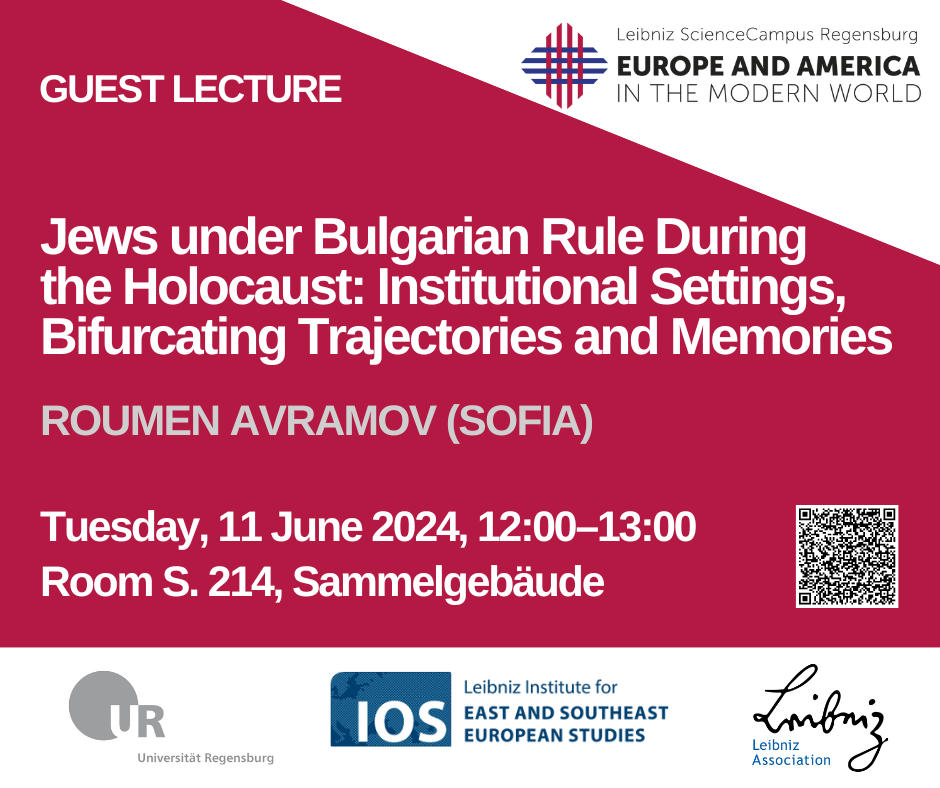Guest Lecture | Roumen Avramov (Sofia) | Jews under Bulgarian Rule During the Holocaust: Institutional Settings, Bifurcating Trajectories and Memories
When? Tuesday, 11 June. 12:00–13:00
Where? S. 214 (Sammelgebäude, Uni Regensburg)
The event is open to all. No registration is required.
Join us on 11 June at 12:00 for a guest lecture by ScienceCampus visiting researcher Roumen Avramov, who will address how the memory, commemoration and historiography relating to Bulgaria's role in the Holocaust has developed around contrasting and competing narratives of rescue and responsibility. He will also explore the transnational and regional aspects of Holocaust history and memory, drawing on relations with Yugoslavia, Greece, Germany and broader Holocaust studies.
Abstract
The fate of the Jews under Bulgarian rule during WWII bifurcated into two dramatically different paths. All the communities were subject to systemic anti-Semitic policies, but while the Jews residing in Bulgaria proper survived, those from the territories occupied since April 1941 in Yugoslavia and Greece were deported to the death camps.
The talk will comment on the foundations of the racial system laid down in 1941, as well as on the series of decisions taken in 1942 which obeyed a strategic master plan about the “radical solution” of the so-called “Jewish question” in the country. It established the Commissariat for Jewish affairs and opened the door to measures leading to the “Final Solution”. The talk addresses the negotiations with the German Reich during the Autumn/Summer of 1942 as well as subsequent developments. In March 1943, Bulgaria carried out deportations from the occupied “new lands” by organizing roundups, transportation, and handing over of Jews to German forces at two border points. Meanwhile, an unexpected political setback provoked the sudden halt (10 March 1943) in the prepared deportation of the first 8 000 Bulgarian Jews from the “Old Kingdom”.
The lecture will in particular explore the bifurcation of the postwar memories which crafted two narrative lines blurring the Bulgarian role in the Holocaust. The dominant account places the exclusive emphasis on the “Rescue story” celebrated as “the exception in Europe”. The other tends to externalize the state’s responsibility for the deportations and relativize the dark reality of the anti-Semitic policies. I will discuss the biases in the historical premises of both patterns. The talk will focus on the recent commemorations of the 80th anniversary of the events from March 1943. Patronized by the highest state authorities, they adopted a nationalistically tainted discourse in tune with the global conservative trends. Despite the undeniable progress in the knowledge on the Bulgarian anti-Semitic policies, and the presence of more outspoken critical voices, this historiographical field remains distorted, thus calling for a renewed research agenda.

